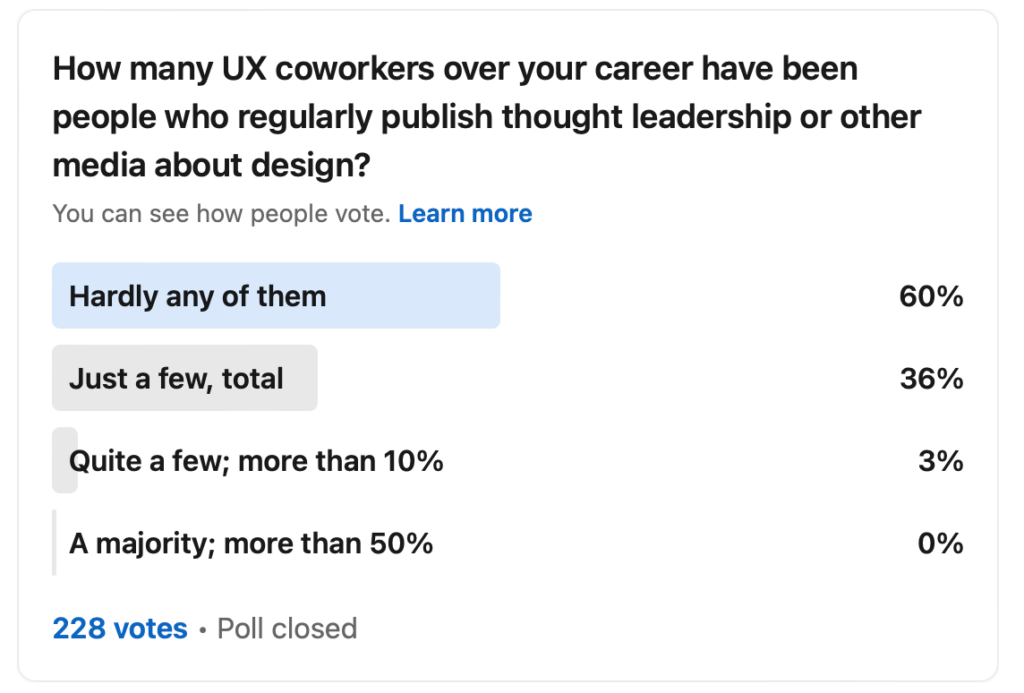It’s okay to just live a life.
A lot of folks I talk to pursuing UX career growth get themselves tied up in knots about things like:
- blogging about their work
- posting about design on social media
- having profiles on all the social networks
- getting accepted to speak at high-profile conferences
and so on.
They think that’s all stuff that they have to do, alongside resumes, portfolios, and job applications.
If that’s you, and you’d in fact rather not do those things, I’ve got great news: most designers don’t, and you don’t have to, either.
Most designers aren’t design influencers.
Email newsletters, social media feeds, and the links and articles getting passed around workplace Slack channels can make it feel like everyone but you is speaking at conferences, making design TikToks, starting podcasts, leading online workshops, and creating LinkedIn posts about workplace culture that go viral and get 10,000 people commenting “THIS. I FEEL SO SEEN.”
It’s not everyone. You’re really seeing two things:
- Media from people who publish a lot of it. Some folks post on LinkedIn multiple times a day during the week. (Sometimes that’s me!)
- The aggregate effect of some small portion of all possible workers in UX / product / tech / startups and more posting something here and there.
Combine those two and there’s going to be a lot of stuff.
But most designers aren’t making most of that stuff … most designers aren’t making any of it!
At places I’ve worked, it’s usually only been me and mayyybe one or two other people who regularly write or speak about design outside of work. And it sounds like that’s the case for everyone else, too:

Consider the results from this LinkedIn poll I ran last week. Most respondents say that hardly anyone they’ve worked with posts regularly about design. And it’s still not even half for people in spaces more dense with aspiring thought leaders. I feel confident concluding that you definitely don’t have to do any of this stuff to have a career in UX.
But you should share about your work if you’d like to. Just remember that…
Writing about your work doesn’t require a long-term commitment.
You can create media about your work here and there, or apply to a conference or two, without committing to an endless project like maintaining a blog or publishing a weekly podcast.
I would love to see more voices in the mix. If you’ve got something to say, say it!
➡️ Four Tips on Writing About Design (article)
➡️ You Should Write a Book (book)
You don’t have to start a blog to write about your work. In fact, you might get even more bang for your buck by seeking publication elsewhere. Review your bookmarks and see what you’ve been reading; those places might take submissions, or discover they’re open to it if someone would ever ask.
Collaborating with another podcast or publication gives you the benefit of an existing audience without the weight of a project you might not be ready to commit to.
When it comes to public speaking, consider lower-pressure starting points like a local meetup group or regional web conference (universities are a great source for these). Or throw your hat in the ring for an event with lots of support for new speakers, like Button.
➡️ List of UX content meetups and communities
Whatever you do, remember that you don’t have to do it forever, and you don’t have to go it alone.
Raise your profile through engagement without creating any content.
A big reason my clients feel like they have to be writing and publishing case studies all the time is because they want to get noticed, which might open a promising connection or create a warm lead.
That can absolutely happen. (There’s a great anecdote on this episode of What’s Wrong With Hiring about someone getting a job from one Medium article!)
But you don’t have to be the one creating the content for that to work. Reacting to posts, or reposting things on LinkedIn, helps people see your name, and might inspire them to check your profile if you have a compelling headline.
Thoughtful comments work even better. Be friendly and add to the conversation — point out something interesting that you liked, or how you might use the info going forward. And if something gets you fired up because you think it’s bad advice … now you’re halfway to your own article! (Just don’t post it as a comment.)
Know what you want from what you’re doing.
Whether it’s applying to conferences, pitching a book, posting on LinkedIn twice a day, or starting a podcast … you want to have a very clear idea of what precisely you want out of it.
Try filling in these blanks to complete the prompt:
"After [amount of time] of [doing thing], [this] will be different for me."If that’s a struggle? I say skip it. Start smaller, experiment, and try to find a clearer answer.
Or? Just do your job and live your life. That’s good, and plenty. 🍬
